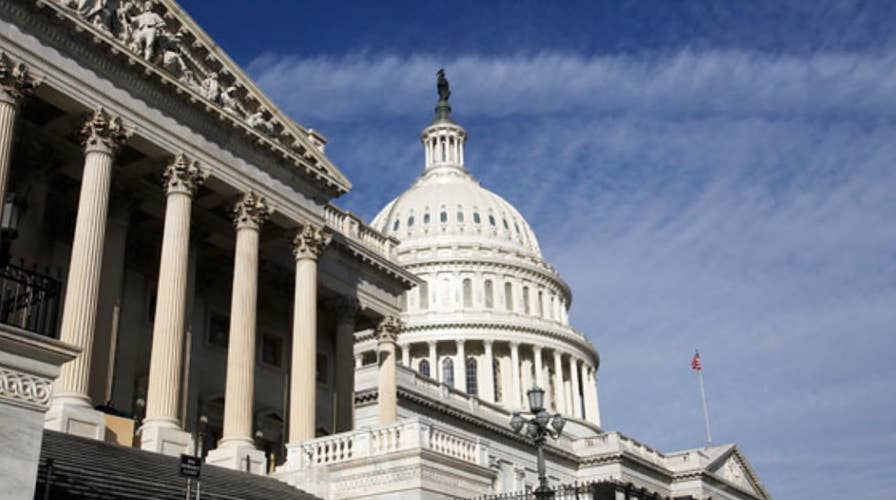A look at how the government spends your taxes
This year Washington will collect $26,198 per household, but spend $33,054; national correspondent William La Jeunesse reports from Los Angeles.
By now, you’ve heard “fairer, flatter, simpler” repeated over and over. It was our goal with the Tax Cuts and Jobs Act to reform an outdated tax code that – over the last three decades – had become absurdly complicated and no longer worked for our economy.
We wanted to rebuild confidence in our private sector. We wanted to bring back America’s competitive edge by giving job creators freedom from punishing high taxes – and we did just that. This is the most optimistic the business community has been since the financial crisis.
But what exactly does “fair and simple” mean for your community? Your family? Your small businesses? Your neighbors?
Democrats are claiming that our bill was a giveaway to the wealthy, but if you look at some of our nation’s largest companies, they are rewarding their employees with the dollars saved by tax cuts.
For workers, this means bonuses and wage increases because of the lowered tax rates. Business owners are seeing dramatically less of their profits siphoned off by the government, giving them freedom to invest in those who are the backbone of their company.
Our nation’s largest employer, Walmart, raised wages by $2 for hourly employees working full time, along with cash bonuses and new benefits. In Tennessee, Advance Financial increased its 401(k) match from 3 to 5 percent for every employee and increased its charitable giving by 8 percent. FedEx is investing $3.2 billion in new projects, higher wages, bonuses and retirement funding.
Those are some nice “crumbs,” as House Minority Leader Nancy Pelosi, D-Calif., likes to say.
The average increase in wages from January to March this year is the highest for any three-month period in nearly a decade. When business owners have confidence coupled with funding and resources, their vision turns into investment.
Headquartered in our own Franklin, Tennessee, Acadia Healthcare announced that it will add new jobs, expand existing facilities and open new health centers nationwide to fight the opioid crisis and treat mental illness.
For mom-and-pop stores on Main Street, tax cuts mean greater write-offs and lower rates. When buying a computer or office space – or even a car for your personal business – the purchase is fully deductible within the first year.
We also implemented a 20 percent deduction applying to the first $315,000 of earned joint income that will carry forward, if not used in the first year, and can be applied to reduce taxes down the road. These stores belong to our families and our neighbors – they are the lifeblood of our communities.
For our farmers, the outlook has been bleak due to low crop prices and near-record debts; net farm income has seen its greatest multiyear drop since the Great Depression. Many farmers are looking for a second job or are having to sell the land that has been in their family for generations.
In my home state of Tennessee, this not only has economic ramifications, but cultural ones as well. Farming is not simply an occupation – it’s a lifestyle that moves day in and day out, 365 days a year.
But with our tax cuts, there is a renewed sense of hope. Farmers will have more cash on hand to put toward paying off their debt and investing in their families.
Our tax cut includes a 100 percent expensing measure for new and used depreciable assets placed in service after September 27, 2017 and before January 1, 2023. Farmers and ranchers also have the ability to immediately write off the entire cost of their new equipment, giving their productivity a boost and giving them more confidence in their future.
This is what tax reform is all about: helping taxpayers, especially middle-income families and small businesses, put more money in their pocket so they can choose what to do with it. At the end of the day, everybody benefits from this reform.
I’m proud of our accomplishment because it means people can breathe easier – and with confidence. You know how to spend your money better than the government. It’s as simple as that.

